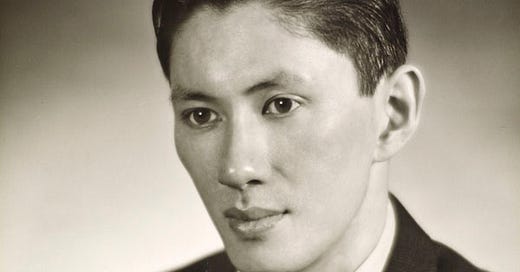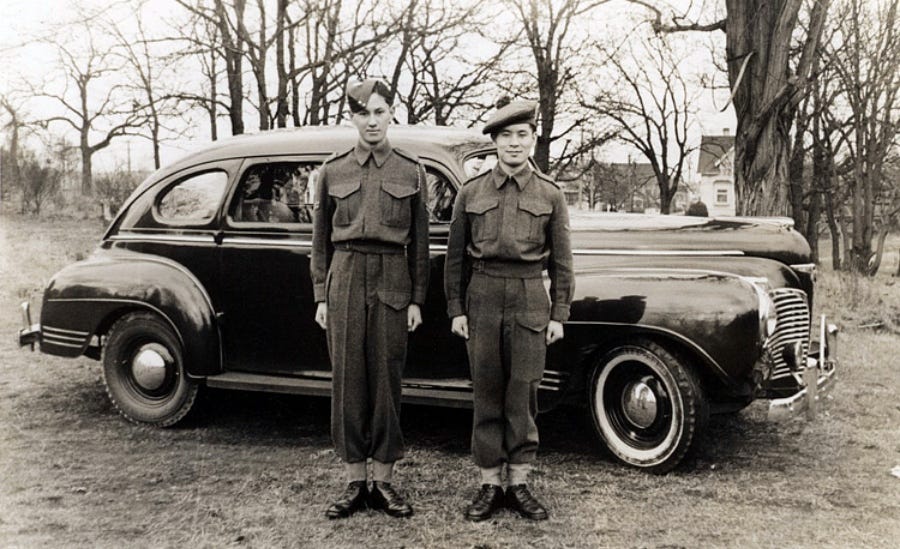May is Asian Heritage Month and there are many amazing Asian-Canadians who have left their mark on our history.
One of the most interesting was Douglas Jung.
Not only was he a lawyer, secret agent and activist, but he was also the first visible minority elected to Parliament.
Douglas was born on Feb. 25, 1924 in Victoria, B.C. Throughout his life he saw the discrimination against Chinese Canadians, including laws that prevented immigration to Canada.
Hoping to improve the status of Chinese-Canadians in Canada, he enlisted to fight in the Second World War. He said of that decision:
"Some of us realized that unless we volunteered to serve Canada during this hour of need, we would be in a very difficult position after the war ended to demand our rights as Canadian citizens because the Canadian government would say to us, ‘What did you do during the war when everybody else was out fighting for Canada? What did you do?’ So a few of us volunteered to serve, and my group was probably the first to join up."
He enlisted in 1939, but was not given his first assignment until 1944. This was because politicians in Ottawa and British Columbia were concerned about enfranchising Chinese-Canadians after the war and as a soldier, Jung would have had the right to vote.
In 1944, Jung joined Force 136, a team of secret agents deployed to British Malaya to resist the Japanese occupation and train guerilla soldiers. Known as operation Oblivion, Jung received parachute training in Australia and the South West Pacific.
This operation was cancelled suddenly and Jung spent the war leading search and rescue missions in British Borneo and New Guinea.
After the war, Jung attended the University of British Columbia and earned a Bachelor of Laws degree.
In the early-1950s, Jung joined the Progressive Conservative Party. He refused to join the Liberal Party due to the racist laws against Chinese Canadians enacted by the party in the 1920s.
In 1957, was elected to the House of Commons. He was the first visible minority & first Chinese-Canadian elected to Parliament.
In his first speech in the House of Commons, he called on the government to take a leading role in bridging to the Pacific Rim countries.
He served in Parliament until 1962, during which time he helped get amnesty for illegal immigrants from Hong Kong in Canada. He also represented Canada at the United Nations.
Among the honours he received during his life were the Order of Canada and the Order of British Columbia.
In 1995, while marching with veterans, he suffered a serious heart attack. He never fully recovered, and died in 2002.
On Sept. 7, 2007, the federal building at 401 Burrard Street in Vancouver was named for him.






